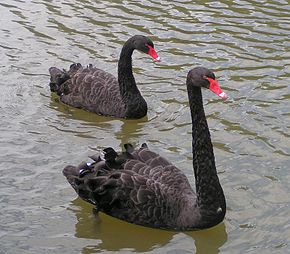Wikipedia:Falsifiability

Informally, a statement is falsifiable if some observation might show it to be false. For example, "All swans are white" is falsifiable because "Here is a black swan" shows it to be false. The apparent contradiction seen in the case of a true but falsifiable statement disappears once we know the technical definition.
Falsifiability differs from verifiability, which was held as fundamental by many philosophers such as those of the Vienna Circle. In order to verify the claim "All swans are white" one would have to observe every swan, which is not possible, whereas the single observation "Here is a black swan" is sufficient to falsify it.
It was introduced by the philosopher of science Karl Popper in his book The Logic of Scientific Discovery (1934), as an answer to both the Problem of Induction and the Demarcation Problem. He saw falsifiability as the cornerstone of critical rationalism, his theory of science.
As a key notion in the separation of science from non-science, it has featured prominently in many scientific controversies and applications, even being used as legal precedent.
(This page incorporates text from the Wikipedia, namely Falsifiability).
